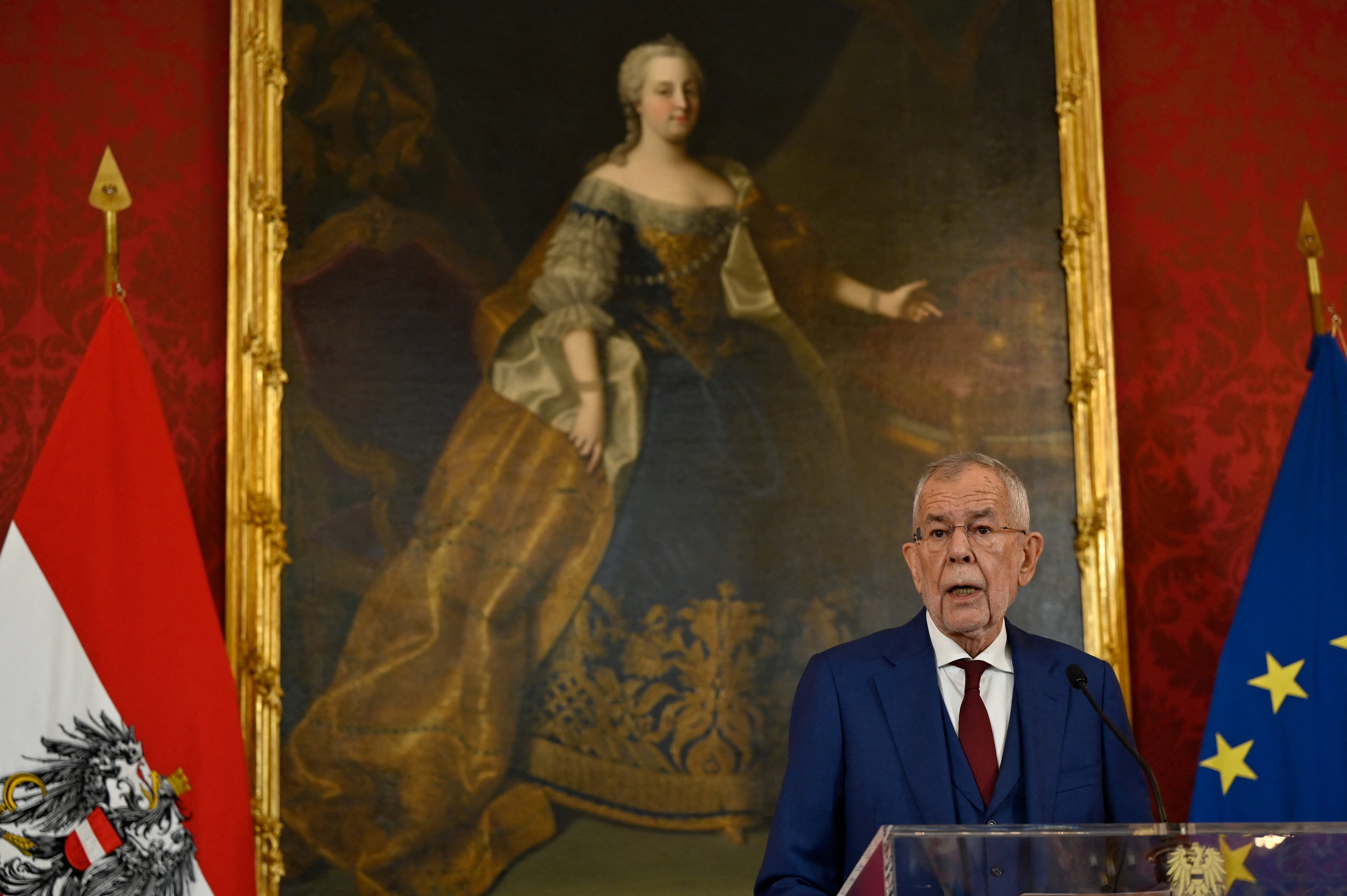
The President of Austria, Alexander Van der Bellen, announced this Tuesday that he has entrusted the formation of the next Government to the current Chancellor and leader of the Christian Democrats (ÖVP), Karl Nehammer, to seek an agreement with the Social Democrats (SPÖ) and foreseeably a third party ―the liberals of Neos or Los Verdes―. The extreme right, who won the parliamentary elections on September 29 with 28.8%has been left out of the race. As Van der Bellen (former leader of the Greens) has highlighted, “no one wants to make an agreement” with their leader, Herbert Kickl, or with the Freedom Party (FPÖ). Furthermore, Kickl has proclaimed since election night that he will not enter an Executive that he does not lead as chancellor. “Austria needs a Government that can act, is stable and has integrity,” the president stressed in a speech to the citizens, in which he explained that the conservatives, who were second with 26.3%, and the social democrats, with 21.1% are now called to seek “commitments” to govern together as soon as possible.
Although tradition (not legislation) has so far dictated that the president commission the negotiations to the winning party ―since World War II they have been conservative or social democrats―, Van der Bellen decided not to do so after a first round with the leaders of all the parties with parliamentary representation. The president already confirmed then that the extreme right was not in a position to attract possible partners for a Government headed by Kickl, which the rest of the parties consider extremely radical and a danger to the security of the country and democracy, so he asked the rest of formations that “clarified” the situation with new conversations to decide the next steps.
From these second conversations – and the public statements of the leaders – the Austrian president has once again concluded that the ultras do not have partners at this time to head the Executive. According to Van der Bellen, the leaders of the rest of the parties have expressed in their interviews with him that they are concerned about the future of liberal democracy, the rule of law and the security of the country if the Executive is left in the hands of an FPÖ to which Furthermore, they criticize his Euroscepticism, proximity to Russia and radical groups such as the Identitarians. Van der Bellen has even highlighted the great concern in foreign intelligence services about Kickl’s possible participation in the Government.
Despite being far from a majority in Parliament and having no prospect of gaining partners, the ultra leader has insisted that his party should have been entrusted with forming a Government. Kickl has maintained in a message on his social networks that “many” will feel Van der Bellen’s decision as a “slap in the face.” “The last word has not yet been said,” added the ultra leader, who has once again claimed to be the voice of the “will of the Austrian voters.” “No one can claim the entire nation for himself. (…) Only a majority above 50% can approve laws in Parliament,” the president had said shortly before.
Social Democrats, liberals and environmentalists ruled out a coalition with the extreme right during the campaign, while the conservative Nehammer rejected it with Herbert Kickl as leader, but left the door open to his party, in which there are “reasonable people”, as he claims. The ÖVP already governs with the ultras in several regions of Austria and has shared the national executive with them.
The chancellor insisted on this distinction between leader and party after the elections, in which the conservatives suffered a severe setback of 11 percentage points and fell to second place. Negotiating with the Social Democrats gives him the option of staying in office, but it will not be easy given the programmatic distance that separates both parties. Van der Bellen himself has indirectly admitted that ÖVP and SPÖ are very far apart in their positions, which is why he has insisted on the need for them to seek consensus and reach “compromises.”
Nehammer, who addressed the media hours later to formally announce that he accepts the task of forming a Government and has announced that he believes that a tripartite will be necessary to ensure stability. The ÖVP governed the last legislature with the Greens as a minority partner, but both have ended up estranged. The Neos liberals, who with 9.1% surpassed the environmentalists by one point, offer themselves as an alternative.
In Parliament, the two large traditional parties have a majority of one seat (92 out of 183), so the president has already suggested that it is likely to be necessary to form a tripartite for a stable Government. “We face major challenges and need deep reforms, implemented consistently and supported by a broad base. “I trust in the sense of proportion and responsibility of the ÖVP, the SPÖ, as well as the other parties participating in the negotiations,” he stated.

